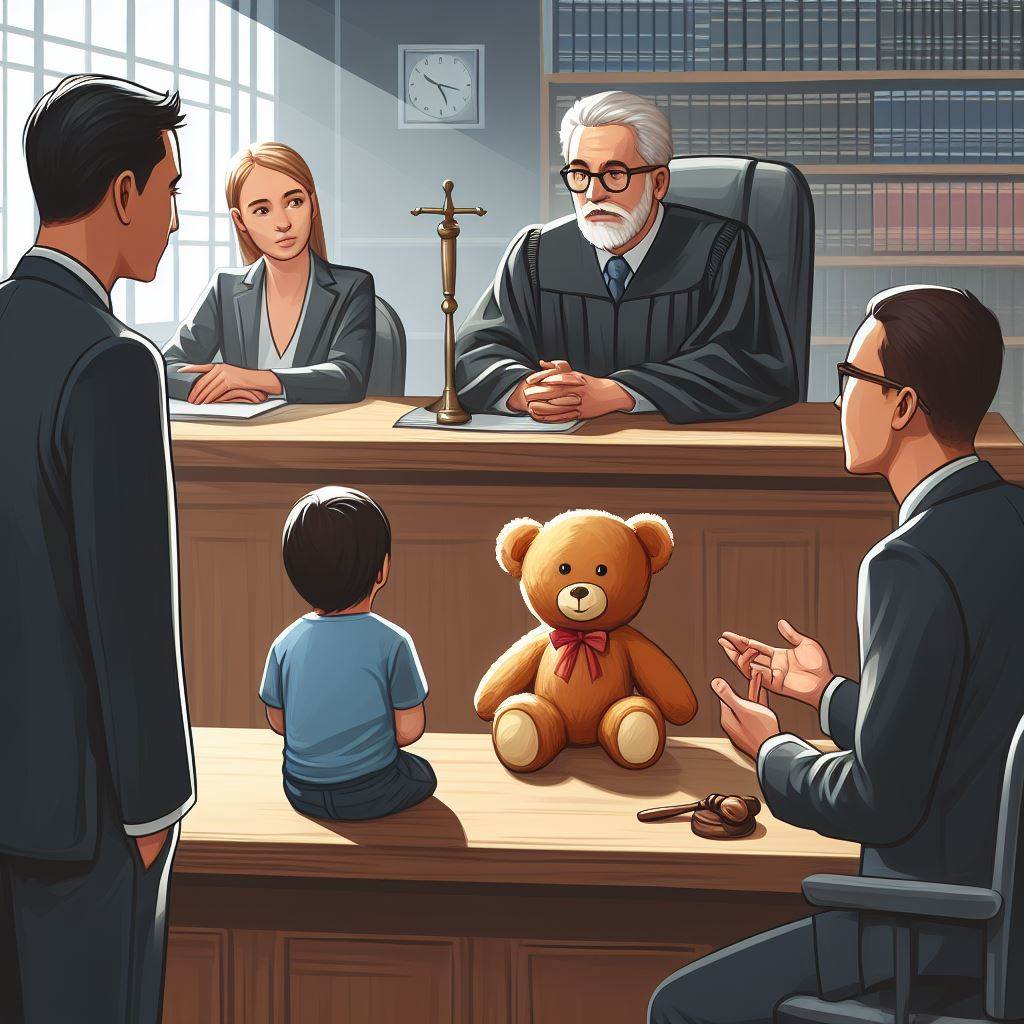Rights and duties of the mother, father, and child are based on the child's origin from them, as evidenced by the procedure established by law. Parents do not always behave properly towards their children, abuse their rights, or evade their parental duties. Deprivation of parental rights is an extreme measure of influence on individuals who fail to fulfill their parental duties, and the question of its application should be decided only after a complete, comprehensive, and objective clarification of the circumstances of the case, including the parents' attitude towards the children.
Deprivation of parental rights
entails exclusively a judicial procedure, with the mandatory participation of the guardianship and custody authority. Cases are considered in the order of adversarial proceedings, and the lawsuit is filed at the defendant's place of residence.
Grounds for deprivation of parental rights
The court may deprive the mother or father of their parental rights if there are such grounds:
1. If they do not pick up the child from the hospital within six months and do not take care of him/her;
2. f they evade their duties regarding the upbringing or education of the child;
3. If they treat the child cruelly;
4. If they suffer from alcoholism or drug addiction;
5. If they exploit the child or force him/her to beg;
6. If they have been convicted of a criminal offense against the child.
If the court finds signs of a criminal offense in the actions of the parents, it notifies the investigation authorities.
Who has the right to apply to the court with a lawsuit for deprivation of parental rights?
The right to file a statement to the court for deprivation of parental rights is granted to a certain circle of persons:
1. One of the parents.
2. Guardian, custodian.
3. A person in whose family the child lives.
4. Healthcare institution, educational institution where the child stays.
5. Guardianship and custody authority.
6. Prosecutor.
7. The child himself/herself, if he/she is fourteen years of age or older.
Legal consequences of deprivation of parental rights
A person deprived of parental rights faces the following legal consequences:
1. Loss of personal non-property rights regarding the child and exemption from duties related to his/her upbringing. This means that he/she no longer has the right to participate freely in the child's upbringing and communicate with him/her.
2. Ceasing to be the child's legal representative. Deprivation of parental rights means that this person can no longer represent the interests of the child in legal matters.
3. Loss of entitlement to benefits and state aid provided to families with children. This may include financial support, medical services, and other social benefits.
4. Limitation of the possibility of being an adoptive parent, guardian, or custodian. A person deprived of parental rights cannot fulfill these roles regarding other children.
5. Loss of property rights associated with parenthood. This includes the loss of the right to support from the child, the right to a pension and compensation for damage in case of loss of a breadwinner, as well as the right to inheritance.
6. oss of other rights based on kinship with the child. This may include various rights arising from family ties.
In addition, a person deprived of parental rights is not exempt from the obligation to support the child. When the lawsuit for deprivation of parental rights is satisfied, the court simultaneously decides to recover child support. If the mother, father, or other legal representatives of the child refuse to receive child support from the person deprived of parental rights, the court may decide to transfer child support to the child's personal account at the State Savings Bank of Ukraine.
Restoration of parental rights
Parents who have been deprived of parental rights have the right to apply to the court with a lawsuit for the restoration of parental rights. However, there are some limitations:
1. Restoration of parental rights is not possible if the child has been adopted, and the adoption has not been revoked or declared invalid by the court.
2. Also, if at the time of the case consideration the child has reached the age of majority, the parents cannot restore their parental rights.
3. The court takes into account changes in the behavior of the person deprived of parental rights and the circumstances that led to the deprivation of these rights, and makes a decision in the interests of the child.
4. When considering a case of restoration of parental rights, the court also takes into account the opinion of the other parent and other persons living with the child.
Deprivation of parental rights is the last resort applied only in the most complex situations. It aims to protect children and ensure their well-being.
Legal service "Consultant" provides legal assistance in cases of deprivation of parental rights. Our lawyers will conduct a legal analysis of the situation, prepare a legal opinion, lawyer's opinion, gather necessary evidence for the case, if necessary, prepare a lawyer's request, obtain the necessary information or evidence on the submitted lawyer's request, and provide legal support for the consideration of the case in court.




































